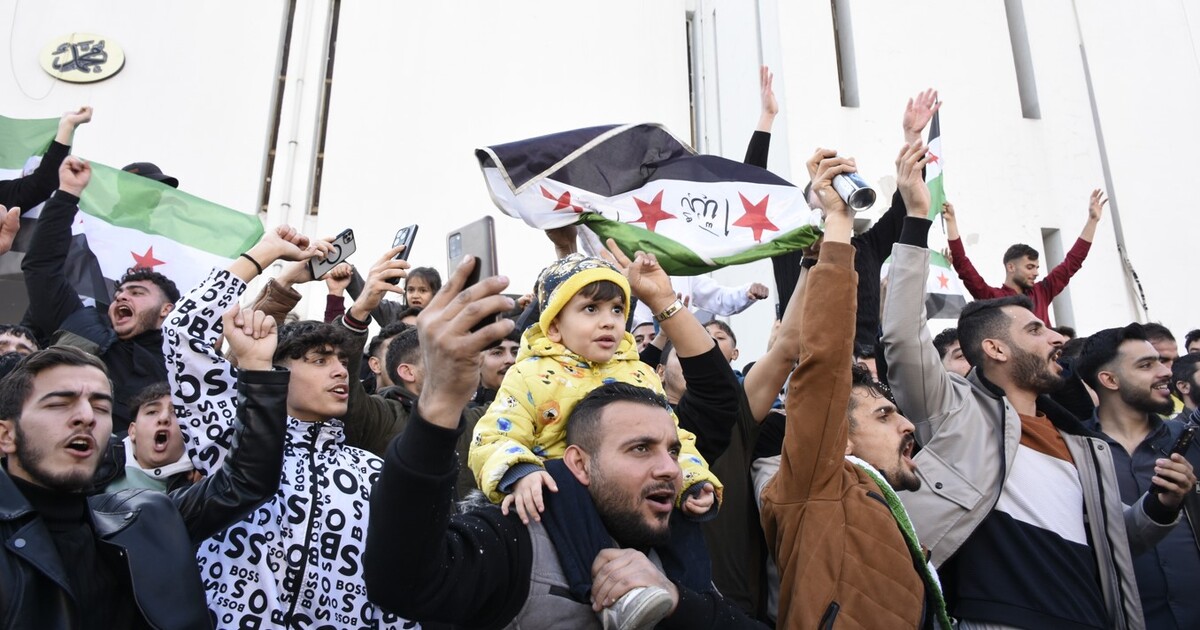After Assad: It’s the Syrian People, Stupid!
The fall of Assad cannot be understood solely through the lens of geopolitics or realpolitik. It’s a testament to the perseverance of the Syrian people.
December 15, 2024

A Strategic Assessment Memo (SAM) from the Global Ideas Center
You may quote from this text, provided you mention the name of the author and reference it as a new Strategic Assessment Memo (SAM) published by the Global Ideas Center in Berlin on The Globalist.
The problem with too much geopolitics is that it often stops saying anything meaningful. It fails to capture life on the streets, the networks of people, the emotions that, at the end of the day, truly matter.
The problem with too much geopolitics
The same critique applies to realpolitik frameworks. I am not arguing that they are useless — far from it. They can be valuable analytical tools. But there is a limit to viewing the world as a U.S.-centric or even Eurocentric board game.
Yes, Syria has been a battleground for global and regional powers, each pouring money and weapons into shaping the country’s future to suit their interests.
Yes, the results have been uneven — some players have seen their investments evaporate, while others have emerged with tangible gains. Yes, the conflict will have regional repercussions.
A single family’s stranglehold crushed a nation
And yes, Syria’s future could very well be bleak. The key questions — who will govern and in what form? — remain tangled.
The most critical point to grasp about Syria is this: A tyrannical father and son — the Assads — siphoned off the people’s welfare and hope, doing so only in order to fill the coffers of a small, sectarian circle of loyalists at the expense of millions.
The Assad regime, long thought to be eternal — its supporters chanting the slogan “qāʾidnā li-l-abad, al-Assad” (“Our leader forever, Assad”) — has finally fallen.
The Whodunnit
Speculations abound: Was this the result of a Turkish operation? A NATO plot? Did Israel and the United States orchestrate it? Was Russia the real loser? Or is it part of some grander scheme to dismantle Iran’s regime?
These questions, while teetering on the edge of conspiracy, may warrant discussion — if, and only if, they help us understand the atrocities endured by the Syrian people and identify those accountable beyond the Assad regime.
But for now…
Can we pause to acknowledge the joy and relief of Syrians worldwide? The old regime is gone. Whatever comes next, it is new.
In 2011, peaceful protests against Assad’s oppression erupted in Deraa. Syrians in many areas demanded freedom — but were met with imprisonment, torture, displacement and death.
And yet, just before the end of 2024, Assad Jr. and his family fled to Moscow, leaving behind a grim legacy. The numbers tell a horrifying story:
– 613,500 dead
– 55,000 tortured to death in Assad’s prisons
– 25,000 perished at sea, entire families lost while trying to cross the Mediterranean.
The regime responsible for these horrors fell because the Syrian people demanded it. Any analysis — whether from the left or the right — that overlooks the Syrian people’s agency disrespects the lives lost in the struggle.
Revolutions unfold in different ways
Some revolutions explode like supernovas, their moment of boundless possibility, their liminality fleeting. Others simmer, grinding their way through history, their transformations gradual and painstaking.
In either case, revolutions’ aftermath is invariably fraught with uncertainty and the transitions that follow are rarely seamless.
So, let’s get the order of things right:
1. Honor the Syrian people for their perseverance and resilience.
2. Next, recognize their agency.
3. Then, and only then, extrapolate the next steps and the actors who will shape them.
Takeaways
The fall of Assad cannot be understood solely through the lens of geopolitics or realpolitik. It’s a testament to the perseverance of the Syrian people.
The problem with too much geopolitics is that it often stops saying anything meaningful. It fails to capture life on the streets, the networks of people, the emotions that, at the end of the day, truly matter.
A tyrannical father and son – the Assads – siphoned off the people’s welfare and hope, doing so only in order to fill the coffers of a small, sectarian circle of loyalists at the expense of millions.
Can we pause to acknowledge the joy and relief of Syrians worldwide? The old regime is gone. Whatever comes next, it is new.
Some revolutions explode like supernovas, their moment of boundless possibility, their liminality fleeting. Others simmer, grinding their way through history, their transformations gradual and painstaking.
A Strategic Assessment Memo (SAM) from the Global Ideas Center
You may quote from this text, provided you mention the name of the author and reference it as a new Strategic Assessment Memo (SAM) published by the Global Ideas Center in Berlin on The Globalist.


